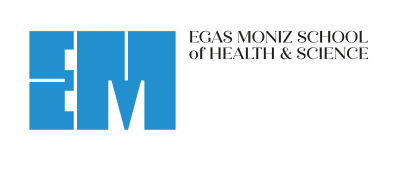
Bachelor in Veterinary Nursing
Egas Moniz School of Health & Science

Key Information
Campus location
Monte de Caparica, Portugal
Languages
English, Portuguese
Study format
On-Campus
Duration
3 years
Pace
Full time
Tuition fees
EUR 4,284 / per year
Application deadline
Request Info
Earliest start date
Request Info
Introduction
Our Degree in Veterinary Nursing (DVN) values the practical and sustained application of the acquired knowledge, forming competent and able Veterinary Nurses (VN) that can contribute significantly to the Health and Animal Welfare, not only of Pets, but also of Exotic Animals, Horses, and Livestock Species.
DVN's curriculum structure values tutorial learning in a real environment, based on innovative logic, established in teaching that aims for integration, branching, and professionalization, while also valuing global health. Animal Welfare and ethics will be valued through broad access to clinical models and simulators, reinforcing the acquisition of skills and the preparation of students with real practical cases, in a deep respect for sick animals and their responsible use in teaching.
Taught in English or in Portuguese
Allowing the globalization of teaching and the internationalization of students, here at Egas Moniz, students are truly evolving in a multicultural and international context.
Gallery
Admissions
Curriculum
The strong component of Tutorial Guidance throughout the academic path and the close communication between the student and the tutors will provide an academic environment in which the student is co-responsible for their learning.
Year 1
- Animal Organism I
- Biochemistry and Biophysics
- Microbiology
- Parasitology
- Cytology and Histology
- Exognosis
- Fundamentals of Veterinary Nursing
- Animal Organism II
- AnimalNutrition and Feeding
- Animal Behaviour Ethics and welfare
- Animal Hygiene and Grooming.
- Genetics and Animal Production
- Scientific Thought in Veterinary Nursing
- Veterinary Clinical Nursing I: clinical rotation
Year 2
- Fundamentals of AnimaPathology
- Infectious Diseases and Immunity
- Pharmacology in Veterinary Nursing
- Imaging in Veterinary Nursing
- Semiology in Veterinary Nursing
- Anaesthesiology in Nursing
- Veterinary Clinical Nursing II: clinical rotation
- Laboratory Work for Veterinary Nurses.
- Veterinary Surgical Nursing.
- Veterinary Medical Nursing.
- Physiotherapy and Rehabilitation in Veterinary Nursing
- Urgency and Intensive Care in Veterinary Nursing
- Public Health in Veterinary Nursing
- Management and Accounting in Veterinary Nursing
- Veterinary Clinical Nursing III: clinical rotation
Year 3
- Applied Nursing in Companion Animals
- Applied Nursing in Equines
- Applied Nursing in Exotics
- Applied Nursing in Farm Animals
- Mindfulness in Veterinary Nursing
- Marketing and Information Technologies
- Veterinary Clinical Nursing IV: clinical rotation
- Externship
Career Opportunities
- Work with different animal species, in a Veterinary Medical Service Center, in Animal Production and in Veterinary Public Health;
- Maintain a constructive relationship with the animal and its owner;
- Promote Animal Welfare;
- Perform analyses and laboratory tests;
- Use auxiliary diagnostic equipment;
- Provide anesthetic and surgical support;
- Perform administration of medication as prescribed;
- Provide clinical and prophylactic care to animals;
- Provide services in Veterinary Public Health in pets and livestock species;
- Assist in the area of health inspection, classification of meat and carcasses and technology for processing animal products;
- Identify and critically develop research opportunities;
- Apply new information technologies, legislation, taxation and accounting, relevant to their activity.